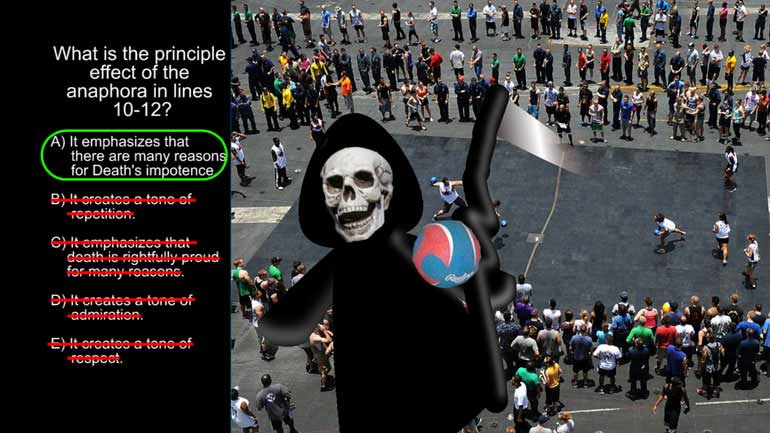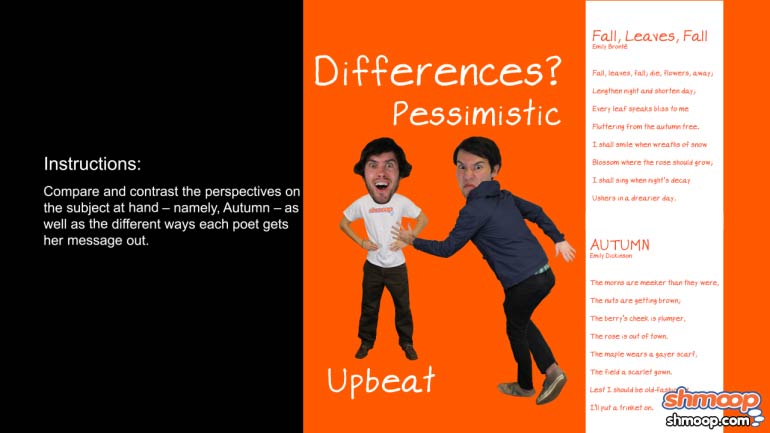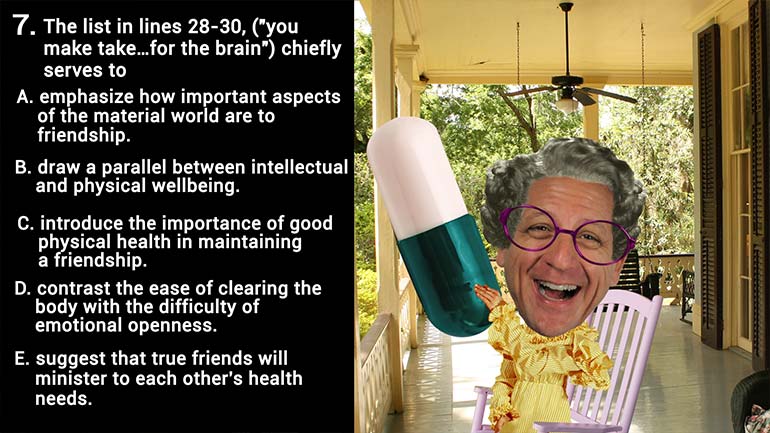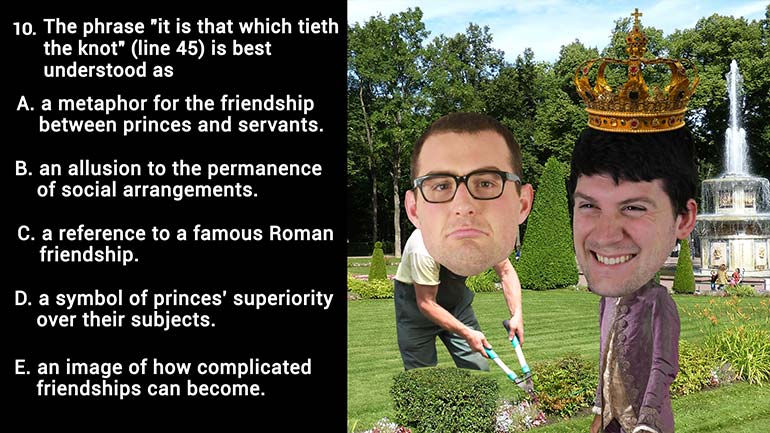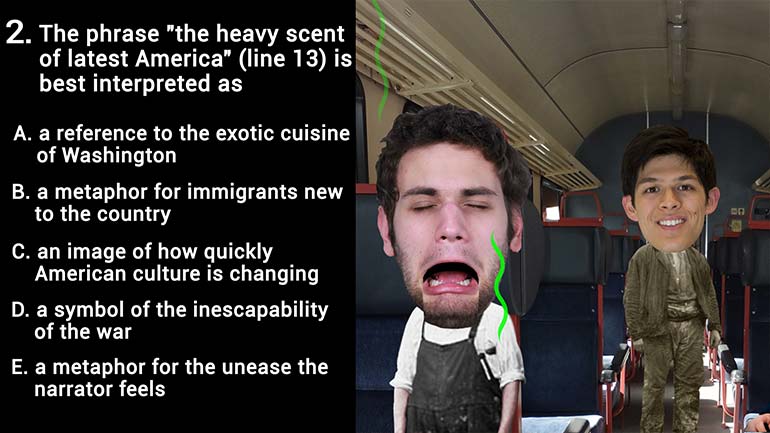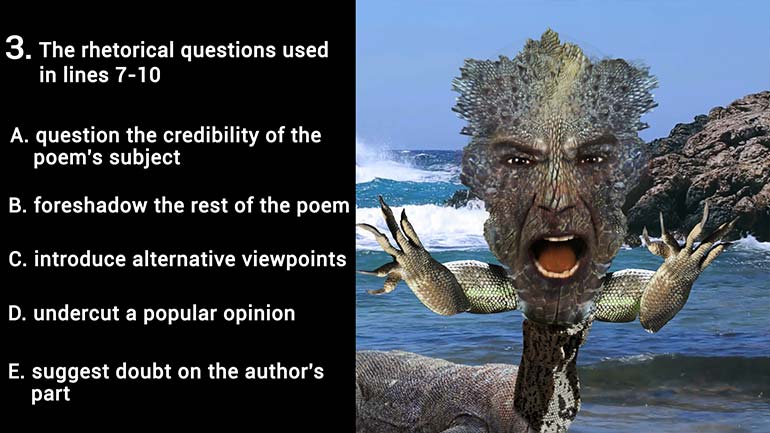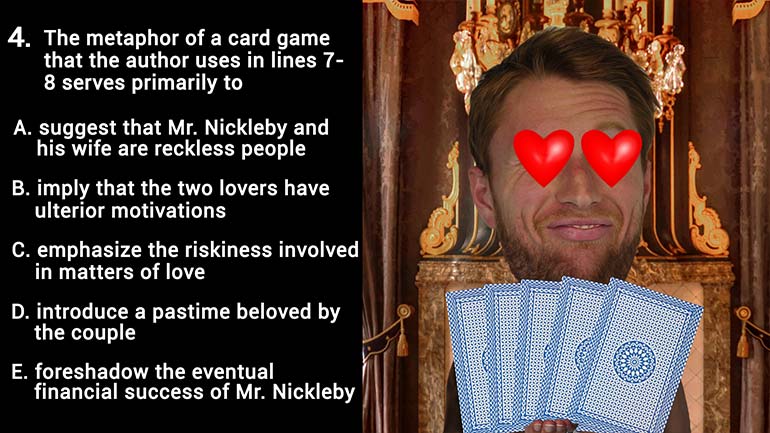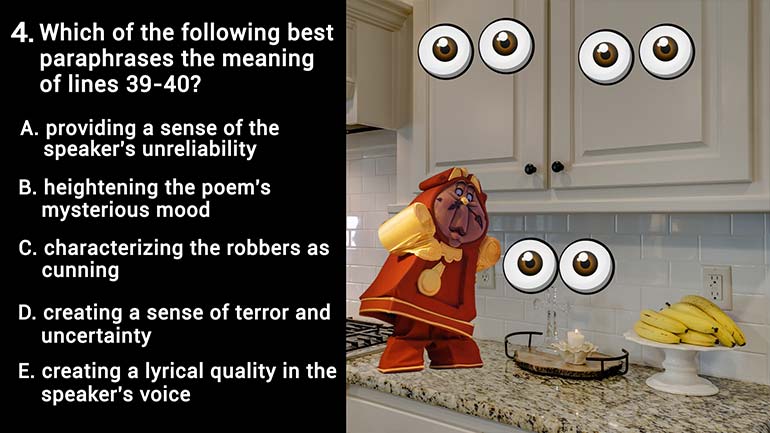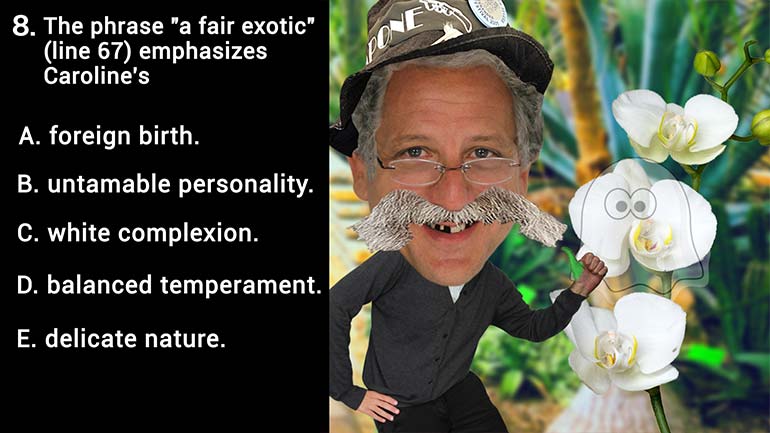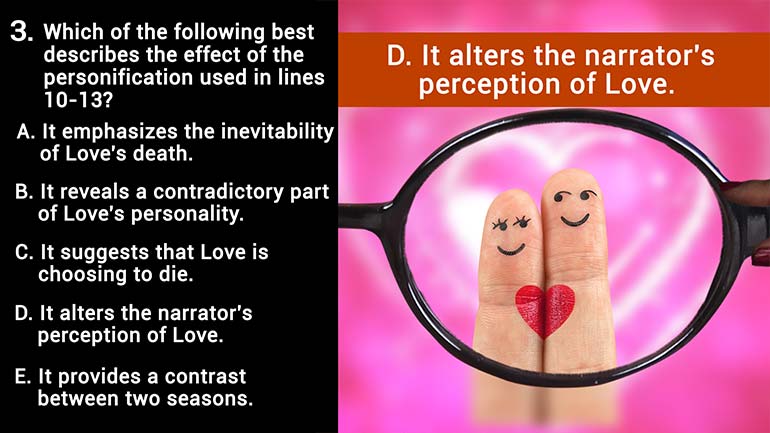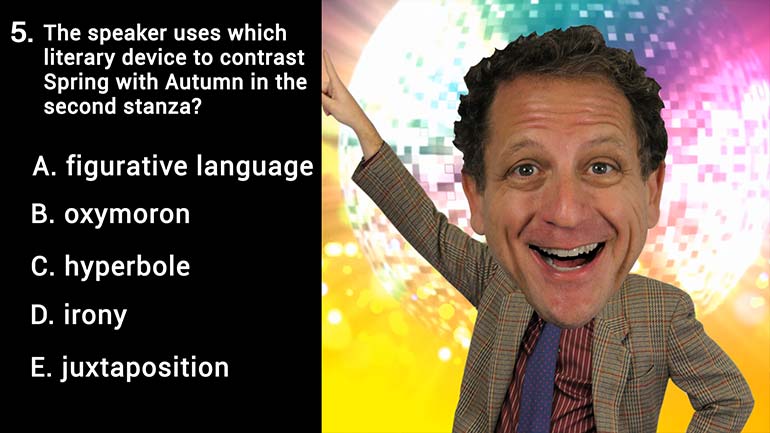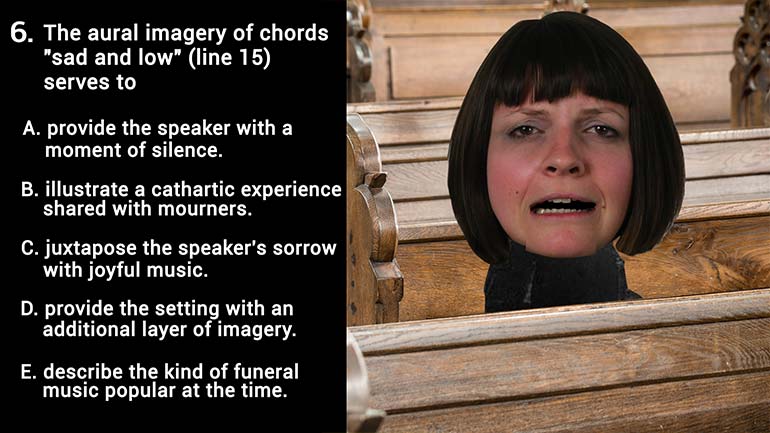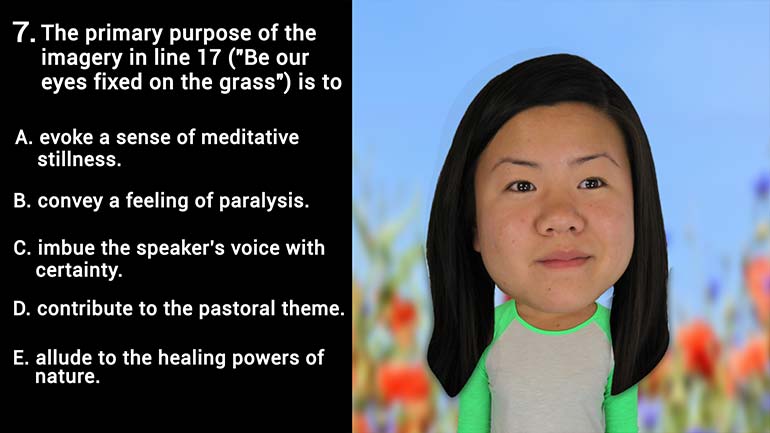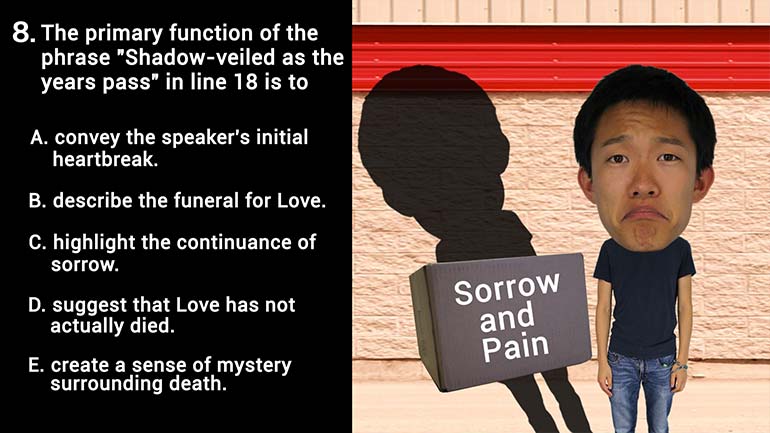ShmoopTube
Where Monty Python meets your 10th grade teacher.
Search Thousands of Shmoop Videos
Interpreting meanings and effects of figurative language and imagery Videos 18 videos
AP English Literature and Composition 1.8 Passage Drill 2. What is the principle effect of the author's allusions in lines 10-11?
AP English Literature and Composition 1.5 Passage Drill 5. What is the principle effect of the anaphora in lines 10-12?
AP English Literature and Composition 1.9 Passage Drill 5. Which of the following lines best expresses a paradox?
AP English Literature and Composition 1.9 Passage Drill 5 198 Views
Share It!
Description:
AP English Literature and Composition 1.9 Passage Drill 5. Which of the following lines best expresses a paradox?
Transcript
- 00:04
Here's your shmoop du jour, brought to you by Poppies. If they're good enough for the
- 00:07
Wicked Witch, they're good enough for Death.
- 00:17
Which of the following lines BEST expresses
- 00:20
a paradox? And here are the potential answers...
- 00:28
a paradox is not where you park your two boats after making your way back to shore.
Full Transcript
- 00:33
Nice try. Rather, a paradox is a statement that seems
- 00:36
to contradict itself.
- 00:38
Like, "God can create a rock so heavy he can't lift it"...
- 00:42
...or, "Candace wanted a real job so she found work as an actress."
- 00:46
We're given five answer choices... and are told that ONE of them is the BEST example of a paradox.
- 00:52
So... which is it? Is it B? "Die not, poor Death, nor yet canst thou kill me."
- 00:57
Close... but not quite.
- 00:57
It's not saying that Death can't die... it's more like the author is taunting Death...
- 01:02
saying, "Oooh, I'd just like to see you try to kill me."
- 01:04
"Come at me with your mitts up, big fella..." We can actually eliminate C, D and E all at
- 01:09
once, and for pretty much a unified reason.
- 01:11
Looking them over, we can see that each line contains multiple modifiers, or nouns... but
- 01:16
not two contradictory ideas.
- 01:18
And since we're in such a contradictory mood... we can pass them by.
- 01:22
Which leaves only A -- "And death shall be no more; Death, thou shalt die."
- 01:26
Okay, now he's telling Death he will die...
- 01:29
But... uh... who's going to make that happen? Does Death have an assistant, or is there
- 01:33
some sort of... substitute Reaper program?
- 01:35
Nope... it seems inconceivable that Death itself could die... which is what makes this
- 01:40
statement a paradox.
- 01:41
Our answer is A.
- 01:42
As in, "Alive and loving it."
Related Videos
AP English Literature and Composition 1.2 Passage Drill 4. As which of the following is the object being personified?
AP English Literature and Composition 1.4 Passage Drill 3. How is Burne's view of pacifism best characterized in lines 57 through 67?
AP English Literature and Composition 1.6 Passage Drill 5. Death is primarily characterized as what?
AP English Literature and Composition 1.7 Passage Drill 5. Which line indicates the turn or shift in this poem?
AP English Literature and Composition 1.9 Passage Drill 4. Lines 32-34 are best understood to mean what?

